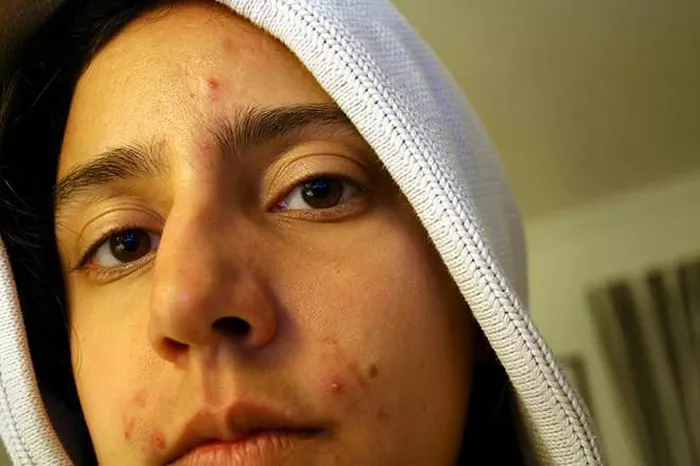Pimple marks, often the lingering aftermath of acne breakouts, can be a source of frustration and self-consciousness for many individuals. In the quest for clearer, smoother skin, various home remedies and natural treatments have gained popularity, with lemon being hailed as a potential solution for reducing pimple marks. In this comprehensive guide, we delve into the science behind lemon’s purported benefits, exploring its effectiveness in fading pimple marks and achieving a more even complexion.
Understanding Pimple Marks: Causes and Characteristics
Before delving into the potential benefits of lemon for reducing pimple marks, it’s essential to understand the nature of these skin imperfections. Pimple marks, also known as post-inflammatory hyperpigmentation (PIH), are dark spots or discoloration that appear on the skin after an acne lesion has healed. They occur as a result of inflammation and excess melanin production in response to the trauma caused by acne.
Pimple marks can vary in appearance, ranging from flat, red or brown spots to more pronounced, raised scars. While they are not medically harmful, pimple marks can persist for weeks or even months, affecting one’s confidence and self-esteem. Various factors, including genetics, skin type, and the severity of acne, can influence the development and duration of pimple marks.
Potential Benefits of Lemon for Pimple Marks: Examining the Evidence
Lemon, with its high concentration of citric acid and vitamin C, is often touted as a natural remedy for lightening dark spots and reducing hyperpigmentation. Advocates of lemon for skincare claim that its acidic properties can exfoliate the skin, promote cell turnover, and inhibit melanin production, leading to a more even skin tone and reduced appearance of pimple marks.
While anecdotal evidence and traditional wisdom support the use of lemon for skincare purposes, scientific research on its efficacy for reducing pimple marks is limited. However, several studies have investigated the effects of lemon and its components on various skin conditions, shedding light on its potential benefits for improving skin tone and texture.
1. Citric Acid and Exfoliation:
Citric acid, a key component of lemon juice, is known for its exfoliating properties. By gently sloughing off dead skin cells and promoting cell turnover, citric acid can help fade dark spots and reveal fresher, brighter skin underneath. Exfoliation can also enhance the penetration of other skincare ingredients, making them more effective in targeting pimple marks.
2. Vitamin C and Antioxidant Protection:
Lemon is rich in vitamin C, a powerful antioxidant that helps protect the skin from oxidative stress and damage caused by free radicals. Vitamin C also plays a crucial role in collagen synthesis, which is essential for maintaining skin elasticity and promoting wound healing. By bolstering the skin’s natural defenses and supporting repair processes, vitamin C may contribute to the fading of pimple marks over time.
3. Lightening Properties:
Some studies suggest that the acidic nature of lemon juice may help lighten dark spots and hyperpigmentation. Citric acid acts as a natural bleaching agent, inhibiting melanin production and reducing the intensity of pigmented areas. Regular application of lemon juice to pimple marks may lead to gradual lightening and a more uniform complexion.
4. Anti-inflammatory Effects:
Inflammation is a common component of acne breakouts and can contribute to the development of pimple marks. Lemon contains compounds with anti-inflammatory properties, which may help reduce redness and swelling associated with acne lesions. By calming inflammation and promoting healing, lemon may aid in minimizing the appearance of pimple marks and preventing new breakouts.
Safety Considerations and Potential Risks
While lemon holds promise as a natural remedy for reducing pimple marks, it’s essential to use it safely and responsibly to avoid adverse effects. Lemon juice is highly acidic and can cause irritation, redness, and photosensitivity when applied to the skin, particularly in high concentrations or on sensitive skin types. To minimize the risk of irritation, consider the following precautions:
1. Dilute lemon juice with water or aloe vera gel before applying it to the skin to reduce its acidity and potential for irritation.
2. Perform a patch test on a small area of skin before applying lemon juice to larger areas to check for sensitivity or allergic reactions.
3. Avoid applying lemon juice to open wounds, broken skin, or active acne lesions, as it may sting and exacerbate irritation.
4. Limit sun exposure after applying lemon juice to the skin, as it can increase the risk of sunburn and photosensitivity. Use sunscreen with a high SPF to protect your skin from UV damage.
Incorporating Lemon into Your Skincare Routine
If you’re considering using lemon to reduce pimple marks, it’s essential to incorporate it into a comprehensive skincare routine for optimal results. Here are some tips for incorporating lemon into your skincare regimen:
Spot Treatment: Apply diluted lemon juice directly to pimple marks using a cotton swab or clean fingertips. Leave it on for a few minutes before rinsing with lukewarm water. Repeat this process once daily, gradually increasing frequency as tolerated.
Face Mask: Create a homemade face mask by mixing lemon juice with other natural ingredients such as honey, yogurt, or turmeric. Apply the mask to clean, dry skin, and leave it on for 10-15 minutes before rinsing thoroughly with water.
Toner: Dilute lemon juice with water or rose water to create a homemade toner. Apply the toner to the skin using a cotton pad after cleansing to help clarify and brighten the complexion.
Exfoliating Scrub: Combine lemon juice with sugar or baking soda to create a gentle exfoliating scrub. Massage the scrub onto damp skin using circular motions, then rinse thoroughly with water to reveal smoother, brighter skin.
Conclusion: Leveraging Lemon for Pimple Mark Reduction
In conclusion, lemon holds promise as a natural remedy for reducing pimple marks and promoting a more even complexion. Its high concentration of citric acid and vitamin C, along with its exfoliating and lightening properties, make it a popular choice for those seeking to improve the appearance of their skin.
While lemon can be an effective addition to your skincare routine, it’s essential to use it safely and responsibly to avoid irritation and adverse effects. Dilute lemon juice before applying it to the skin, perform a patch test to check for sensitivity, and use sunscreen to protect your skin from sun damage.
Ultimately, achieving clear, radiant skin requires a holistic approach that includes proper skincare, a healthy lifestyle, and patience. By incorporating lemon into your skincare routine and practicing good habits, you can take proactive steps towards reducing pimple marks and achieving the complexion you desire.
[inline_related_posts title=”You Might Be Interested In” title_align=”left” style=”list” number=”6″ align=”none” ids=”7274,7217,7214″ by=”categories” orderby=”rand” order=”DESC” hide_thumb=”no” thumb_right=”no” views=”no” date=”yes” grid_columns=”2″ post_type=”” tax=””]

































